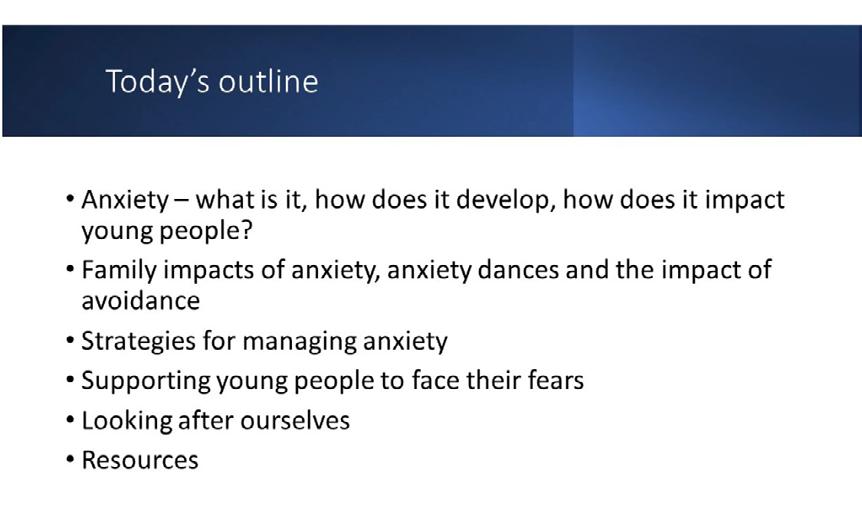
1 minute read
› Improved health outcomes through new Pae Ora Healthy Lifestyles ki Waitaha Service ... pg 16–17 › Supporting young people with anxiety
Supporting young people with anxiety
Anxiety is one of the toughest and most common challenges that Aotearoa’s young people and families face.
Advertisement
Understanding how it works and what we can do about it can make a big difference. For over a decade, the four session, face-toface PACES group (Parenting Anxious Children – Education Sessions) created by Child and Family Clinical Psychologists Carolyn Doughty and Cherie Benns, has run every term and helped Canterbury parents learn strategies for supporting children with anxiety. With COVID-19 disrupting the face-to-face groups in 2021 and 2022, Child Health Psychologist Nicola McDonald has now adapted the content to be viewed by anyone online: www.cdhb.health.nz/yourhealth/supporting-young-people-with-anxietystrategies-for-parents/ The series of four online videos pull together useful, practical information about managing anxiety for parents and cover: › Anxiety: where it comes from, how it works, how it feels, and how it impacts young people › Feelings/experiences of parents supporting anxious children › Anxiety cycles and how to change them › Avoidance and exposure › A wide variety of strategies for managing anxiety › How to support young people to do things that frighten them › How to look after yourself › Other resources you can tap into. The videos are free for anyone to access and can be viewed as many times as people wish. No referral is needed.
Initial consumer feedback suggests parents are finding the videos very helpful. Further feedback will be collated and used to create additional content as needed, Nicola says. “It is hoped that face-to-face groups will be offered again for parents referred by paediatricians and Child, Adolescent and Family Services case managers in 2023.” Referred parents will be able to choose whether to attend groups or view online content (which will remain free to access without referral), she says.

A slide from the video



